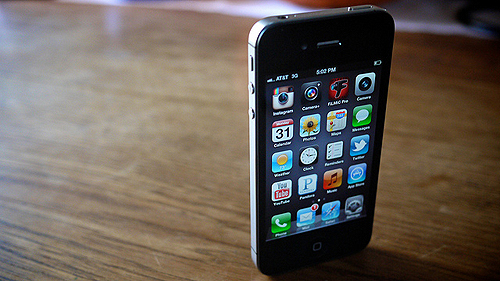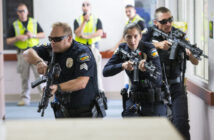Last week the Supreme Court handed down a decision making it more difficult for police to search cellphones without a warrant.
The media hailed this as a major advance for personal privacy in the digital age. While this certainly seems true, we need to review what exactly happened in this case.
On August 2, 2009, an Oldsmobile belonging to David Riley (the defendant) was parked in front of a home in the Skyline neighborhood of San Diego.
A member of a rival gang drove his car through the intersection nearby, and three men standing near Riley’s car fired numerous rounds at the car and then it crashed.
The shooters got into Riley’s Oldsmobile and drove away from the scene. Numerous shell casing from at least two different guns (a .40 caliber and a .45 caliber handgun) were found at the scene.
About three weeks after the shooting, a San Diego police officer stopped Riley because the registration tags on his Lexus had expired.
Riley was also driving on a suspended license.
The officer impounded his car per department policy because he was driving a car with the registration expired and without a valid license.
While impounding the vehicle, the officer is required to conduct a complete inventory of the car and its contents.
After finding the hidden guns the officer arrested Riley for possession of the guns. At the station, the arresting officer gave Riley’s cell phone to the detectives assigned to the case.
Ballistic testing confirmed these two weapons were used in the shooting at the Skyline neighborhood.
Cellphone records showed Riley’s phone was used near the place and around the time of the shooting and was used about 30 minutes later near the location where the police found Riley’s Oldsmobile.
A jury convicted Riley of one count of shooting at an occupied vehicle, one count of attempted murder and one count of assault with a semi-automatic firearm and found numerous enhancements.
The court sentenced Riley to 15 years to life. On appeal, Riley contended the court erred when it denied motions to suppress evidence obtained in the search of his vehicle and the later search of his cell phone.
The trial court evaluated the motion to suppress the guns. The court found the officers followed correct procedures when they conducted the inventory search and had legitimate reasons for the search.
The Fourth Amendment protects people from unreasonable government intrusions into their legitimate expectations of privacy, and when a warrantless search is involved, the burden is on the prosecution to justify the search and prove that the search fell within a recognized exception to the warrant requirement. When police impounded Riley’s vehicle, a warrantless inventory search of the vehicle pursuant to standardized procedures is constitutionally reasonable.
Regarding the search of the cellphone, the message the Supreme Court sent to all police officers was a simple one: when you want to search a cellphone you have to get a warrant or obtain permission from the owner.
When I started in police work more than 40 years ago, it was after the Miranda decision, which required police officers to tell the arrestee that they had the right to remain silent and to not answer questions.
Law enforcement officials around the country predicted Miranda would seriously hamper the ability to get confessions and admissions from suspects.
But today, even with Miranda decision police officers routinely get confessions. Police leaders teach their officers the most recent law and case decisions and develop up-to-date procedures. They work to develop their officer’s tactics and skills to obtain confessions and other useful evidence on a routine basis.
The Supreme Court decision on cell phones is not going be any different. Every year the court hands down decisions that can make the job of being a police officer seem much more difficult, but they are also balancing the rights of everyone to be protected under the U.S. Constitution.
Many police departments already require warrants to be obtained before they can search a cell phone. The police will adjust as they always have and the criminals will continue to be caught and successfully prosecuted.
Walters retired as Santa Ana Police Chief last year. He now works as Executive Vice President of Evidence Based Inc. He can be reached at pwalters@ebinc.com or 949-216-6814
 Behind the Badge
Behind the Badge



